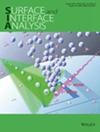催化剂表征的深核级硬X射线光电子能谱
IF 1.8
4区 化学
Q4 CHEMISTRY, PHYSICAL
引用次数: 0
摘要
摘要非均相催化剂是许多催化过程的关键因素。在大多数情况下,关键结构由氧化物支撑的催化金属/合金颗粒组成。了解金属和氧化物之间的相互作用对于理解这类体系的结构-性能关系至关重要。X射线光电子能谱提供了金属和氧化物界面的化学物理性质以及极化效应的途径。结果通常是基于初始态分析的测量结合能的变化而得出的。我们建议扩展使用光电子和俄歇跃迁的分析,以包括最终态效应(Wagner/Hohlneichner图)。这就提供了关于受激原子的特定化学邻域的额外信息。通过硬X射线光电子能谱(HAXPES)研究了三个原型系统,介绍了两种方法来分析最常见的支持元素Al和Si。本文章由计算机程序翻译,如有差异,请以英文原文为准。
Deep core level hard X‐ray photoelectron spectroscopy for catalyst characterization
Abstract Heterogeneous catalysts are the crucial element for many catalytic processes. In most of the cases, the pivotal structure consists of catalytic metals/alloy particles supported by oxides. Knowledge of the interaction between metal and oxide is central to understand the structure–performance relationship of such systems. X‐ray photoelectron spectroscopy provides access to the chemical–physical properties of metal and oxide interface as well as polarization effects. The results are usually derived from changes of the measured binding energies based on initial state analysis. We propose to extend the analysis using photoelectron as well as Auger transition to include final state effects (Wagner/Hohlneichner plots). This gives additional information on the specific chemical neighborhood of the excited atom. Three archetypal systems are investigated by hard X‐ray photoelectron spectroscopy (HAXPES) to introduce two approaches to this analysis for the most common support elements Al and Si.
求助全文
通过发布文献求助,成功后即可免费获取论文全文。
去求助
来源期刊

Surface and Interface Analysis
化学-物理化学
CiteScore
3.30
自引率
5.90%
发文量
130
审稿时长
4.4 months
期刊介绍:
Surface and Interface Analysis is devoted to the publication of papers dealing with the development and application of techniques for the characterization of surfaces, interfaces and thin films. Papers dealing with standardization and quantification are particularly welcome, and also those which deal with the application of these techniques to industrial problems. Papers dealing with the purely theoretical aspects of the technique will also be considered. Review articles will be published; prior consultation with one of the Editors is advised in these cases. Papers must clearly be of scientific value in the field and will be submitted to two independent referees. Contributions must be in English and must not have been published elsewhere, and authors must agree not to communicate the same material for publication to any other journal. Authors are invited to submit their papers for publication to John Watts (UK only), Jose Sanz (Rest of Europe), John T. Grant (all non-European countries, except Japan) or R. Shimizu (Japan only).
 求助内容:
求助内容: 应助结果提醒方式:
应助结果提醒方式:


